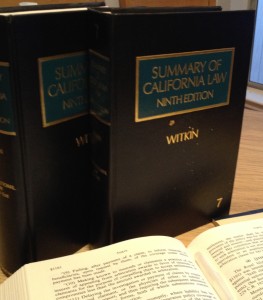More About Waivers of Liability
WRITTEN LIABILITY WAIVERS CREATE “EXPRESS ASSUMPTION OF THE RISK”
In many situations, the law allows people to create contracts whereby one person limits or releases another person from liability for physical injuries and damage to property. These private contracts, often called “Waivers” or “Liability Waivers,” are a form of “assumption of the risk.” The law refers to them as “express” assumptions of risk because the waiver of liability is made in expressly, in a signed writing.

WAIVERS GENERALLY CREATE AN ABSOLUTE RELEASE OF LIABILITY FOR THE PARTY NAMED IN THE RELEASE
Where the parties agree, in advance, that one of them will waive liability, the party making the waiver has “assumed” all known risks associated with the activity. The party signing the waiver thereby agrees to hold the other party completely free of responsibility for resulting injuries. The release effectively removes the legal duty the party being released (the one who would have become the defendant) might otherwise have owed to the plaintiff. Since the duty has been removed, the defendant cannot thereafter be held liable for negligence with regard to the plaintiff’s injuries.
Waivers may not bar all claims against a released defendant. However, valid waivers generally do bar claims arising from the conduct or incident which was the subject of the waiver.
Specifically, waivers allow a plaintiff to assume the known risks of dangerous (or potentially dangerous) activities. Waivers can apply to spectators and participants, and may cover everything from risks associated with attending a sporting event, to releasing an instructor, land or facility owner from liability for participation or actions taken on the premises.
AN EXCEPTION: GROSS NEGLIGENCE AND WILLFUL MISCONDUCT
Otherwise valid waivers of liability for negligent acts generally do not extend to cover a defendant’s gross negligence or willful misconduct. Legally, “gross negligence” refers to the defendant’s failure to act in even a minimally reasonable manner.
Waivers also normally fail to cover a defendant’s intentionally wrongful acts. This is because the law, and public policy, prohibit waivers of intentional wrongs.
AN EXCEPTION: FRAUD AND DURESS
Waivers of liability are not effective when the plaintiff was induced to sign them through the defendant’s fraud or intentional misrepresentation. Also, waivers are ineffective when obtained through duress–a legal term which refers to threats or force.
However, the legal definition of duress requires more than simply telling a plaintiff (s)he cannot engage in an activity unless the waiver is signed. Participation in the relevant activity can be conditioned upon signature of the release and consent to acceptance of the risk–as long as the release is not unconscionable and the plaintiff has the option to refuse (and not engage in the relevant activity or event).
DISCLAIMER: This article is intended for informational purposes only, does not constitute legal advice to any person or entity, and does not create an attorney-client relationship with any person or entity. Negligence law and defenses are a complex legal topic, and no single article can provide complete or comprehensive coverage or information about this or any other legal topic or issue. Your personal liability may differ, based on your individual facts and circumstances. If you believe you have a legal claim or issue, or wish to know more about your individual rights, consult an experienced attorney without delay.














